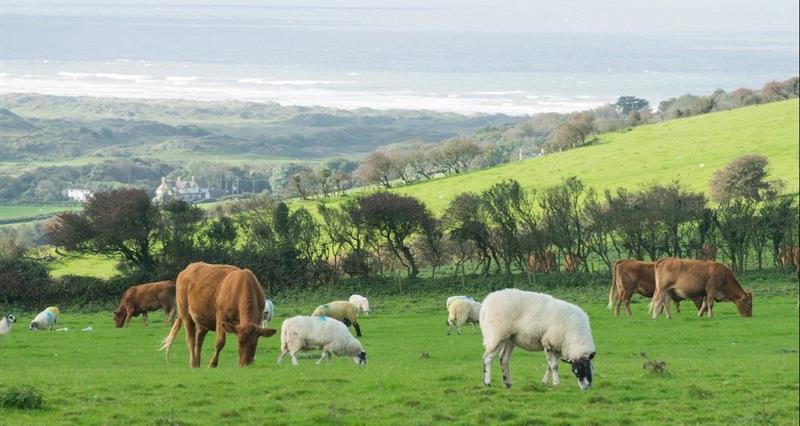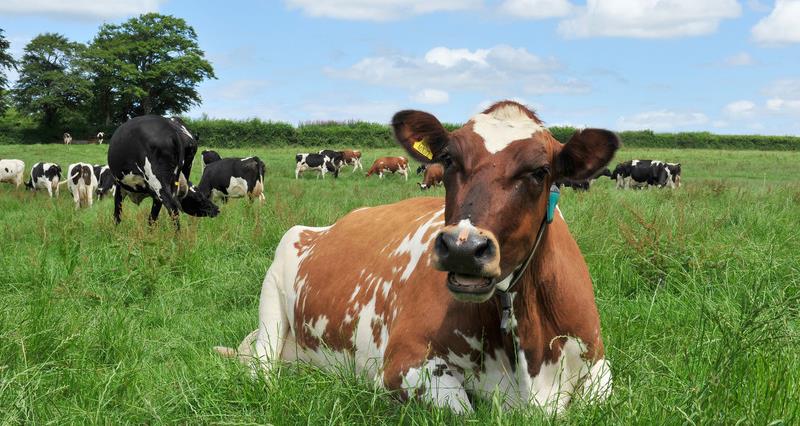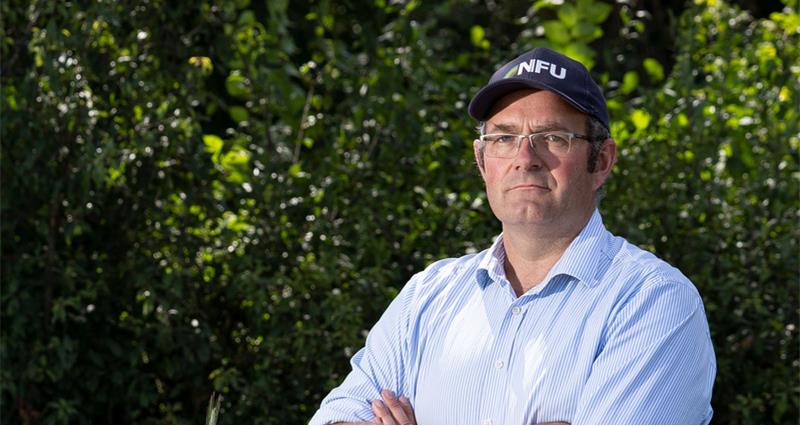Over the past eight months, the NFU's livestock and economics teams have been meeting with NatWest following concerns raised in November 2023 over the GHG (greenhouse gases) tracker on its mobile banking app.
The app gives customers a personalised carbon footprint score each month, and suggests that customers cut red meat out of their diet and drink plant-based milks as a measure to reduce their greenhouse gas emissions.
Reversing recommendations
Following conversations and regular meetings with the NFU, NatWest has made changes to its app.
These include:
- removing the “swap out beef” and “swap to plant-based milk” recommendations, and
- adding the recommendation that customers should “Buy local, British and seasonal produce”.
However, the app still continues to recommend “veggie Mondays”, “choosing vegetarian at home”, “choosing vegetarian” and “choosing (mostly) plant-based” to its customers as ways to reduce their GHG emissions.
Lack of balanced messaging
NFU Livestock Board chair David Barton said:
“I remain disappointed on behalf of our many livestock members, and as a NatWest customer myself, that the bank is still encouraging the reduction of meat consumption on its app, suggesting it will reduce greenhouse gas emissions.
“People should be free to choose whatever diet they wish to follow, but it must be an informed choice.
“We understand that the NatWest app is primarily focusing on GHG emissions, but the reality is that when making diet related recommendations, other factors such as nutrition, environment, and biodiversity must be presented.”
“Purely focusing on GHG emissions overlooks the benefits of British meat entirely and oversimplifies a nuanced topic.”
David Barton
Understanding the value in British meat and dairy
British meat and dairy are among the most sustainable in the world, with UK beef emissions less than half the global average.
Red meat and dairy are also recognised as an essential part of a healthy diet, being naturally rich sources of protein and calcium and providing essential nutrients like iron, zinc and vitamin B12.
David went on to say: “Meat is one of the most nutritionally dense, minimally processed foods that we can consume, and by buying it we are enhancing our landscape, protecting biodiversity, and supporting rural communities.
“Purely focusing on GHG emissions overlooks these benefits entirely and oversimplifies a nuanced topic.
Ongoing conversation
“Despite this disappointment, I am pleased to see some changes being made to the ‘carbon tracker’ on its personal banking app, following NFU engagement with NatWest at a senior level over several months.
“I am also pleased that conversations are still ongoing between the NFU and NatWest on how best to communicate the benefits of meat to the bank’s customers.”
“I remain disappointed on behalf of our many livestock members that NatWest is still encouraging the reduction of meat consumption on its app, suggesting it will reduce greenhouse gas emissions.”
NFU Livestock Board chair David Barton
How the NFU has worked to address the issue
The NFU made NatWest aware that oversimplified messages such as this miss the nuance of the path to a sustainable food system and highlighted the damage such recommendations could do to the British red meat and dairy sectors.
NatWest acknowledged our concerns and our view that these recommendations do not support British agriculture and hugely oversimplify a very complex message.
The NatWest Agriculture team assured us that they were working closely with the Digital Banking team to ensure that a more balanced message is provided via its app.
Speaking at the time, NFU President Tom Bradshaw said:
““It is positive to see NatWest’s willingness to learn, and we are committed to continuing to work with the banking sector to ensure they fully understand and work alongside the agriculture sector when it comes to reducing emissions and supporting resilient, sustainable businesses.”
In August, representatives from NatWest joined the the NFU's livestock, economics and climate change teams on NFU Livestock Board chair David Barton's farm, near Cirencester, to discuss the opportunities and challenges the red meat industry and banking sector face regarding the environment and climate change.
Read: NatWest joins NFU on farm to discuss complexities of red meat sector
Clarifying a complex message
We have offered support in developing this message and reiterated that British livestock and dairy farmers are some of the most GHG efficient in the world and are custodians of large swathes of our iconic landscapes, with grass fields providing important habitats for biodiversity and vital carbon reserves in our soils.
Ultimately, the NFU urges the banking industry to keep a balanced message when making any recommendations to its customers and recognise the important role British farmers and growers have in the transition towards a sustainable economy and the work they are doing, and will continue to do, to facilitate this movement.
We will continue to engage with NatWest on the development of its app.
More from NFUonline:




